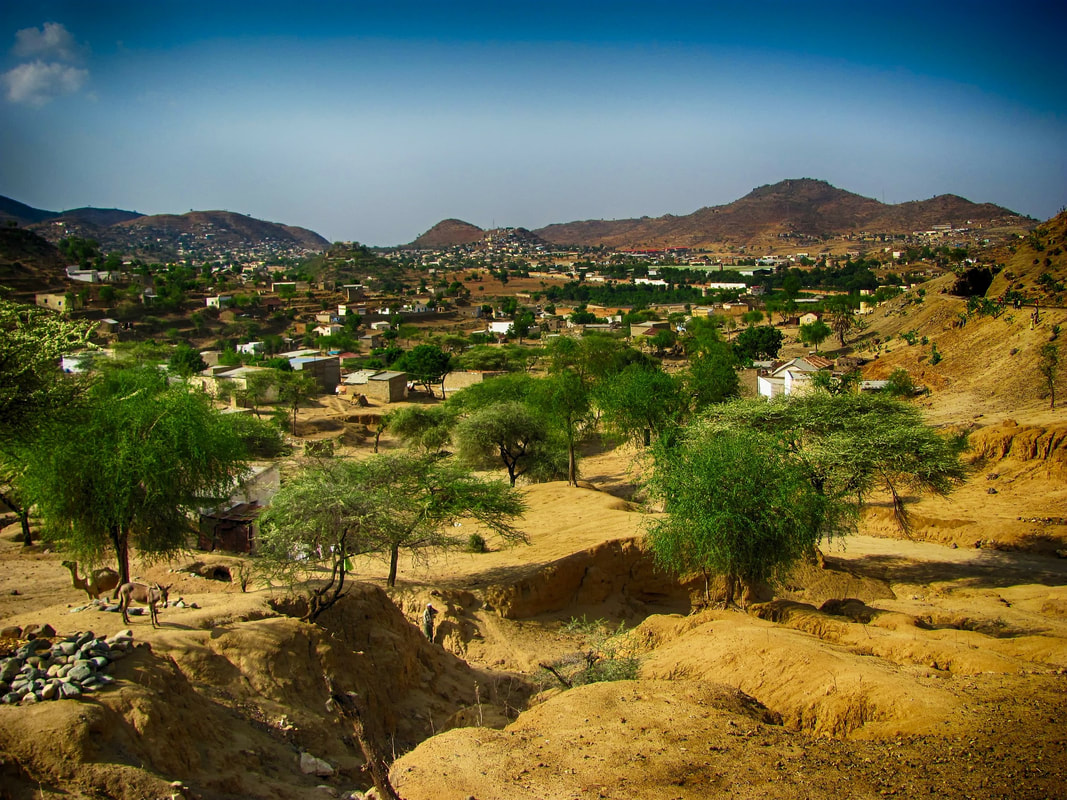|
Long ago I lived a year in Eritrea, in northernmost Ethiopia. With an Eritrean Liberation Front easy to confuse with bandits, we were told to be off the roads by five o’clock and keep a bag packed in case of evacuation. I asked an American who had settled in the countryside, which side did the villagers favor? He said, “They want the fighting to stop and the price of sugar to come down.”
After our departure came drought, famine, and a long civil war. Eritrea won independence in 1991. In Ethiopia, politicians from Tigray—just south of Eritrea—dominated a governing coalition of semi-autonomous regional/ethnic parties for the next 27 years. I remember passing through Tigray on a motorcycle trip to the Blue Nile Falls. The city of Axum, memorable for its ancient stone stelae, was said to hold the Ark of the Covenant, brought there by the Queen of Sheba. A barefoot child guided us through the ruins of the queen’s supposed palace. In 2018, a new government removed the Tigrayans from power and tried to replace ethnic federalism with a fresh sense of national identity. After the new regime postponed promised elections in 2020 because of coronavirus, Tigray held its own election in defiance. Rising tensions erupted into warfare last November. Amid reports and denials of mass murder, rape, and famine, tens of thousands have fled into Sudan. Amnesty International reported hundreds of unarmed civilians shot in the streets of Axum. Our little tour guide, if he is still alive, might be a grandfather by now. He may want the same thing Eritrean villagers wanted decades earlier: Security for his family to get on with their lives. Isn’t that what most of us wish, regardless of time or place? For the fighting to stop and the price of sugar to come down?
8 Comments
6/28/2021 08:38:05 am
Beautifully written about a bad situation. I feel for these people and hope for the days when they can buy sugar without the threat of death.
Reply
6/28/2021 09:09:15 am
Your response means a lot to me, Christine. Sometimes the trauma seems to go on and on without end, first in one part of the world and then another. Rwanda, Kosovo, Darfur . . . When will we ever learn?
Reply
6/28/2021 08:47:20 pm
All the crises in the news happen to real people, but from time to time life's luck of the draw makes a particular crisis feel personal. Earlier, during the famine, I wondered if Mamite (who cleaned our house once a week) and the boy in the corner woodlot (who sold us logs to cut up for the wood-stoked water heater) got enough food to survive. No way ever to know.
Reply
JoAnne Lehman
6/28/2021 06:03:09 pm
So poignant.
Reply
6/28/2021 08:48:58 pm
Thank you, JoAnne. So far away in time and place, but for me so close emotionally.
Reply
Ginny Scholtz
6/30/2021 06:02:41 am
Thanks for the clear picture of real people, living real lives. Makes terms like ethnic cleansing and genocide hit me right in the gut.
Reply
6/30/2021 08:45:33 pm
Thank you, Ginny. Yes, sometimes I can find what we hear in the news, happening to whole populations, is too big for me to feel. It feels more real to me to think of actual people, one person at a time.
Reply
Leave a Reply. |
AuthorI'm a historian who writes novels and literary nonfiction. My home base is Madison, Wisconsin. Archives
July 2024
|

 RSS Feed
RSS Feed